 June 2023 in “Journal of Cosmetic Dermatology”
June 2023 in “Journal of Cosmetic Dermatology” AI and AR are improving cosmetic dermatology but face challenges like data quality and ethical concerns.
 February 2022 in “Cosmetic Dermatology”
February 2022 in “Cosmetic Dermatology” Platelet Rich Plasma (PRP) is increasingly used in cosmetic dermatology for hair loss, facial rejuvenation, and after cosmetic procedures, and can be stored for up to 90 days for daily home use.
June 2021 in “Research Square (Research Square)” Sudanese epilepsy patients often experience hair loss from anti-epileptic drugs but continue their medication regardless of cosmetic side effects.
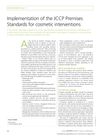 July 2019 in “Journal of Aesthetic Nursing”
July 2019 in “Journal of Aesthetic Nursing” The JCCP's Premises Standards aim to make non-surgical cosmetic treatments safer and higher quality.
 February 2019 in “PubMed”
February 2019 in “PubMed” The research found that twisting hair fibers can show changes in stiffness and damage, and help tell apart different hair treatments.
 November 2018 in “Hair transplant forum international”
November 2018 in “Hair transplant forum international” The article suggests that hair transplant surgery may not be purely cosmetic because it treats a disease and calls for clearer guidelines on its classification.
 August 2018 in “Journal of the American Academy of Dermatology”
August 2018 in “Journal of the American Academy of Dermatology” A new cosmetic cream reduced facial redness and skin temperature after 4 weeks of use.
 February 2018 in “InTech eBooks”
February 2018 in “InTech eBooks” PRP therapy is effective for hair regrowth and improving hair quality with minimal side effects.
 January 2017 in “Clinical approaches and procedures in cosmetic dermatology”
January 2017 in “Clinical approaches and procedures in cosmetic dermatology” Cosmetic procedures can harm hair, but damage can be minimized with knowledge and care; however, once hair is damaged, it cannot be reliably repaired.
 July 2016 in “British Journal of Dermatology”
July 2016 in “British Journal of Dermatology” The book provides an overview of new trends and techniques in cosmetic dermatology.
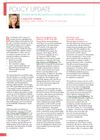 May 2015 in “Primary Dental Journal”
May 2015 in “Primary Dental Journal” The conclusion is that improved training and oversight for cosmetic procedures are recommended to better protect patients.
January 2015 in “Springer eBooks” Healthy hair is crucial to avoid dryness, weakness, and breakage.
 July 2013 in “Hair transplant forum international”
July 2013 in “Hair transplant forum international” The UK published guidelines recommending that only qualified medical professionals should perform cosmetic procedures, with the possibility of these guidelines influencing future laws.

The book provides a guide to cosmetic surgery for people with darker skin, covering various treatments and addressing their unique skin characteristics.
 January 1996 in “Journal of Dermatological Treatment”
January 1996 in “Journal of Dermatological Treatment” Dermatologists should know about cosmetic science and aesthetics because patients care about skin appearance and health.
27 citations,
October 2003 in “Dermatologic Clinics” Certain hair care practices in African American girls can lead to scalp and hair issues.
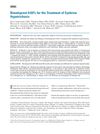 7 citations,
April 2017 in “Dermatologic surgery”
7 citations,
April 2017 in “Dermatologic surgery” Hyaluronic acid fillers and combination treatments significantly improve facial defects from autoimmune diseases and are well-tolerated.
 6 citations,
August 2016 in “Journal of women & aging”
6 citations,
August 2016 in “Journal of women & aging” Older women reported negative physical and psychological effects from Botox and facial fillers, feeling neglected by the medical system.
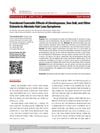 4 citations,
March 2021 in “Asian Journal of Beauty and Cosmetology”
4 citations,
March 2021 in “Asian Journal of Beauty and Cosmetology” Dendropanax, sea salt, and other extracts can help reduce hair loss and promote hair growth.
 2 citations,
May 2010 in “Actas Dermo-Sifiliográficas”
2 citations,
May 2010 in “Actas Dermo-Sifiliográficas” Home-use medical-cosmetic devices like lasers for hair removal may be convenient but need more research to confirm safety and effectiveness.
 1 citations,
January 2024 in “Journal of applied pharmaceutical science”
1 citations,
January 2024 in “Journal of applied pharmaceutical science” Bacteria from Xylocarpus fruit can be used in hair creams to treat hair loss and fight infections.
1 citations,
December 2020 in “Journal of Cosmetic Dermatology” The cosmetic product effectively reduced hair growth and thickness on forearms.
 1 citations,
July 2015 in “British Journal of Dermatology”
1 citations,
July 2015 in “British Journal of Dermatology” Imiquimod improved skin pigmentation in most patients with xeroderma pigmentosum and may prevent further skin cancer, but some treatments can have side effects.
 March 2018 in “Vìsnik farmacìï”
March 2018 in “Vìsnik farmacìï” Researchers developed a method to measure active ingredients in a hair loss treatment cream.
 September 1998 in “JEADV. Journal of the European Academy of Dermatology and Venereology/Journal of the European Academy of Dermatology and Venereology”
September 1998 in “JEADV. Journal of the European Academy of Dermatology and Venereology/Journal of the European Academy of Dermatology and Venereology” The document concludes that individualized treatments for hair issues are effective, certain hair changes can indicate neurocutaneous diseases, specific lotions improve skin health, laser hair removal works but needs more study on long-term effects, men's cosmetics are diverse, peeling is effective but can have side effects, and facial pigmentation is often due to overactive skin cells.
January 2020 in “프로그램북(구 초록집)” Education improves awareness and satisfaction with hair loss treatments.
 March 2005 in “Journal of The American Academy of Dermatology”
March 2005 in “Journal of The American Academy of Dermatology” Two cosmetic lotions improved hair growth and had better cosmetic effects than 2% minoxidil.
 42 citations,
December 2014 in “Clinical, cosmetic and investigational dermatology”
42 citations,
December 2014 in “Clinical, cosmetic and investigational dermatology” Nonablative radiofrequency treatments, especially microneedle and fractional types, can improve acne scars by 25%–75% after 3-4 sessions, with full results in 3 months and some side effects.
35 citations,
October 2000 in “Dermatologic clinics” A scarring hair loss condition mainly affects middle-aged women of African descent, impacting their quality of life, with treatments more effective when started early.
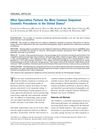 30 citations,
January 2008 in “Dermatologic Surgery”
30 citations,
January 2008 in “Dermatologic Surgery” Dermatologists perform most outpatient cosmetic procedures in the U.S., especially on white women aged 40 to 59.
























